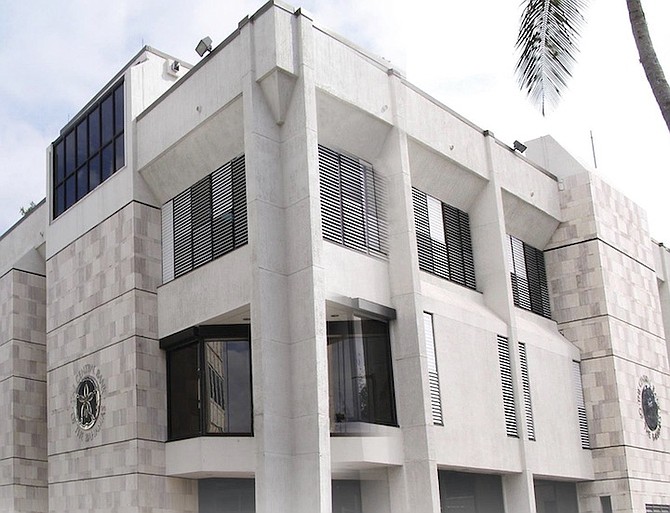By FAY SIMMONS
Tribune Business Reporter
jsimmons@tribunemedia.net
A COMPARISON of bank fees has been released by Central Bank - showing costs across financial institutions, principally for transactions related to deposit accounts and the maintenance of credit services.
For late payments, the regulator considered late fees on credit cards, personal loans and mortgage payments and found Fidelity to have the lowest costs in all areas, RBC, Scotiabank, and First Caribbean with the highest credit card fees, RBC and RBC FINCO with the highest mortgage late fees and Commonwealth Bank with the highest fees on personal loans.
“Fidelity Bank’s costs remained as the lowest in all three categories, while BOB also maintains the lowest charges for late or missed credit card payments. RBC, Scotiabank, and First Caribbean all placed highest as it relates to late credit card payment fees,” said the Central Bank’s report.
“RBC and RBC FINCO follows, with the costliest fees in terms of mortgages. Further, CBL ranks the highest in arrears or late penalties on personal loans once the principal and interest payments exceed a specific threshold.”
For deposit service costs, the Central Bank’s report considered four groups of consumers, students, retirees, adults with chequing accounts with an average balance of $500 and adults with savings accounts with an average balance of just above $1,200.
The regulator found that Commonwealth has the lowest fees for student accounts, however, the bank does not provide ATM cards for student accounts to encourage savings and eliminating the associated fees.
“By and large, simulated student account transactions continued to be the least expensive at Commonwealth Bank Limited (CBL). This was followed by First Caribbean International Bank (Bahamas) Limited (FCIB), Royal Bank of Canada (RBC), and Scotiabank Bahamas Limited, delivering the second-lowest-cost alternative, provided that customers relied optimally on digital service channels. However, because CBL does not provide ATM cards to student account users, the cost was lower vis-à-vis the other financial institutions,” said the Central Bank.
First Caribbean was found to have the lowest fees for retiree accounts and Bank of The Bahamas had the lowest fees for chequing accounts when using digital banking and RBC FINCO had the lowest for chequing accounts when using physical banking services.
First Caribbean had the lowest rates on adult savings accounts when using digital banking channels and Fidelity had the lowest when using physical banking services.
Scotiabank had the highest fees for adult chequing and savings accounts using digital channels, as well as for student and adults with savings accounts that use physical banking services.
The Central Bank said: “FCIB’s cumulative fees were lowest for supposed retiree accounts. When the same customer profile relied most heavily on physical channels for transactions, FCIB’s costs were again the least expensive. They were also lowest in terms of charges for retiree accounts.
“Furthermore, when non-preferential adults utilized digital channels, Bank of The Bahamas (BOB) was ranked as the least expensive in terms of adult chequing facilities, while FCIB was positioned as the least expensive for profiled adult savings. When clients used physical channels, RBC FINCO ranked lowest in cost for adult chequing accounts, while Fidelity placed as the least expensive for adult savings facilities.
“Scotiabank ranked as the priciest option for adult chequing and savings accounts using digital channels, as well as or student and adults with savings facilities utilising mainly physical channels. Meanwhile, RBC FINCO and RBC share the spot for the highest cost for profiled students and retirees utilising digital services. BOB and FCIB ranked on the higher end in terms of fees levied for simulated retiree and adult chequing accounts, where physical delivery was the predominant channel used.”





Comments
Porcupine 1 year, 11 months ago
In the end, just my humble opinion, banking should be a public good and a public service. There should be no profits in banking. All excesses should be used to help fund the public sphere. I'm trying to think like a Christian now. Just whose tables did Jesus supposedly flip over in the temple? There should be no such thing as a rich banker. It is a service job, like all others. No magic. No tricks. No genius needed. Just honesty.
sheeprunner12 1 year, 11 months ago
Bahamians should support more local banks ..... But those banks need to support Family Islanders too. There are very few Bahamian owned banks in the Family Islands
Sign in to comment
OpenID